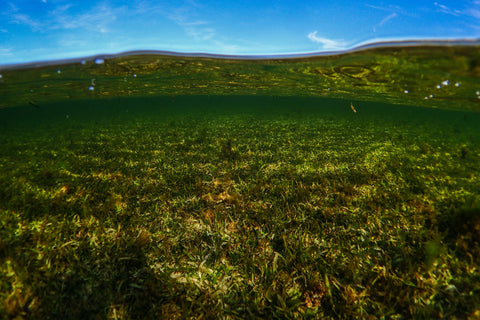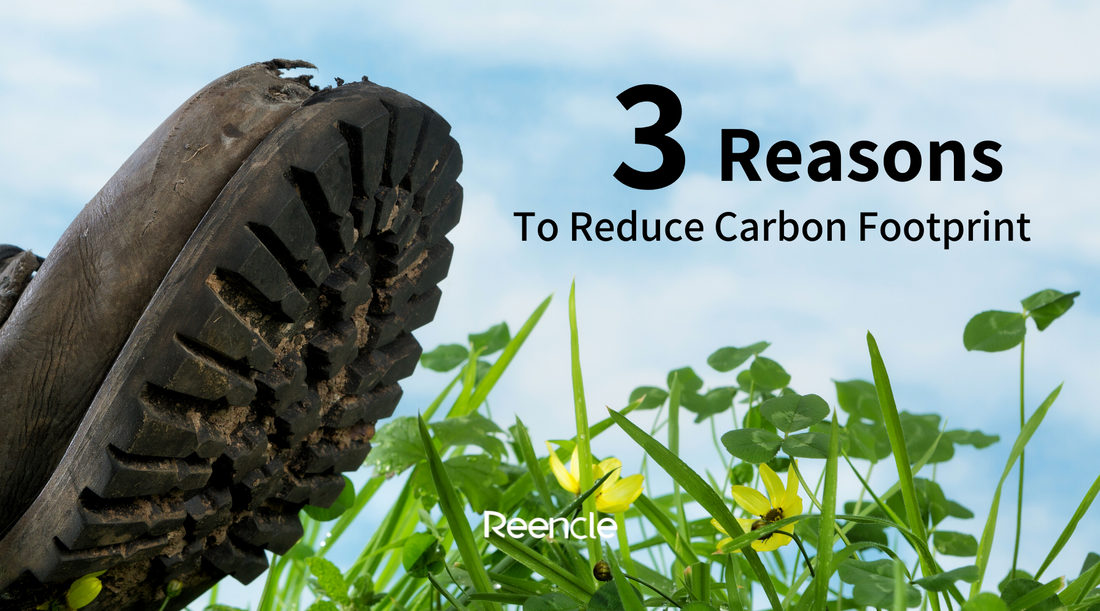
The science of climate change is complex and often overwhelming. Buzzwords like “carbon footprint” are thrown around increasingly frequently, which can feel intimidating. Rather than shying away from learning about climate change, approaching these topics with an open mind and the intention to learn will allow you to become more aware and actively involved in bettering the state of our planet. Changing the world undoubtedly requires global-scale actions (primarily by government bodies) across the globe, but there are choices we can make in our daily lives that reduce our personal negative impact on the environment.
What Does Carbon Footprint Mean?
An individual’s carbon footprint (which is measured in tons of carbon dioxide emissions) refers to the volume of greenhouse gasses resulting from daily habits and activities, both economically and personally. Knowing this is important as it allows us to take the necessary actions in order to reduce our carbon footprint. Every time we travel by car, charge our mobile phones or switch the television on, we are contributing to leaving a trail of carbon gasses that build up in our atmosphere, thus contributing to global warming. The bigger your carbon footprint is, the more you’re contributing to the worsening of our planet’s state. Now that you know what carbon footprint is, let’s talk about why you should reduce it.
Reasons To Reduce Carbon Footprint
1.Mitigation of Global Climate Change Effects
Your carbon footprint contributes to the devastating environmental effects we see as the years go by. When we emit carbon, these emissions have devastating and ultimately irreversible effects on the planet. Some of the negative environmental effects of carbon emissions are:
- Increasing Global Temperatures
When we release carbon emissions, we contribute to global warming, which in itself has terrible effects both short and long term. Since 1880, the temperature of our planet has increased by a total of 1.5 degree Celsius. While this seems like a measly number to even mention, this amount of increase in temperature results in the reduction of ice, rainfall being intensified, severe droughts, the change of habitat range for animals and plants, as well as seasonal and regional extreme temperature changes. As we burn fossil fuels, we release dioxide and other greenhouse gasses into the atmosphere which in turn increases the temperature of the earth and the oceans. Given that water expands when it’s warm, this results in rising sea levels.
- Rising Sea Levels
When the temperature of the earth increases and results in melting ice, this in turn makes the sea levels rise. Since 1880, global sea levels have increased by an approximate amount of 20-22cm (8-9 inches). This rise has resulted in the displacement of people who live along coastlines as it has destroyed coastal habitats. If left unchecked and without change, our roads, bridges, water supplies, gas, oil, power plants and so much more remain at risk.

2. Improve Public Health
Reducing your carbon footprint leads to reduction of harmful gasses in the atmosphere, which subsequently improves the health of those around you, and can also alleviate different symptoms people may experience. With the reduction of your personal carbon footprint, you can help those who have asthma (and other respiratory allergies), cardiovascular disease, stroke, mental health and stress-related disorders, and so many more. Reducing your carbon footprint improves the quality of air and water while reducing severe weathers and maintaining biodiversity. All these things are crucial in ensuring a healthy environment to live in.
3. Maintain Animal & Plant Biodiversity
One of the most intense threats to the long-term survival of animals and plants on earth is climate change. When the ecological balance is disrupted, plants and animals will not be able to keep up with the rapidly changing climate. Inability to adapt can then cause extinction in the long run. A healthy ecosystem has been linked with cleaner air, water and food. Protecting our plant’s habitats also defends against erosion. Plants and animals also play vital roles in the creation of modern medicine.

Knowing the importance of reducing our carbon footprint is only the beginning. This journey requires dedication, lifelong learning and commitment. If you’d like to know more about how you can reduce your carbon footprint, sign up for our newsletter here so you’ll be looped in when we talk about it next!

